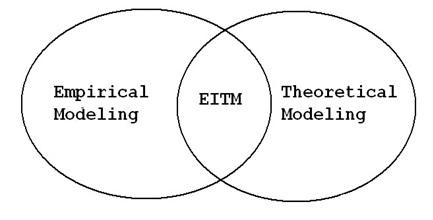News & Events
National Science Foundation $165,000 grant supports training social science scholars
Empirical Implications of Theoretical Models summer workshops unify research tools traditionally taught in silos

The National Science Foundation (NSF) awarded nearly $165,000 to the Hobby Center for Public Policy (HCPP) in support of a program offered by few higher education entities in the country. It’s a program that trains and transforms social science researchers.
Empirical Implications of Theoretical Models (EITM) is a research approach that weds formal and statistical analysis so researchers can use both types of modeling to increase their scientific knowledge.
With this grant, the University of Houston joins a few elite universities to receive this NSF award. Among prior recipients for EITM training institutes are Harvard, Duke and Princeton universities, as well as the University of Chicago, University of California at Berkeley, Washington University and the University of Michigan.
The Hobby Center hosts an annual summer EITM training institute on campus. Started in 2012, the institute equips the next generation of researchers in the social and policy sciences with skills traditionally taught independently, thus failing to harness the strengths each possesses.
“The goal of EITM is to assist in the development of cumulative social, behavioral and policy sciences,” said Jim Granato, professor and director of the HCPP. “The means to that goal is to break ‘siloed’ training to create more transparent relationships between theory and test. To do it well, the student must master a broader set of skills that most social scientists do not learn when they were in graduate school.”
Frank Scioli, former director of the NSF Political Science Program who served from 1976 to 2011 adds that with EITM training, a student (or faculty member who wants to retool) will be taught to unify mathematical models and statistical tests so there is a close approximation to what one is asserting and whether the predictions of the models are borne out.
“EITM does not make your model or theory right,” he said. “What EITM does is give you a better sense of where you went wrong, and, with that, take the necessary steps to improve model accuracy. You cannot achieve that with just mathematical modeling or just empirical testing.”
Granato says the research methods learned in graduate school typically become out-of-date. Researchers find themselves falling behind with inadequate research designs or trained in ways that fail to give them the necessary tools for making their own—and future—basic research contributions.
“The UH program was funded because the NSF deemed it an extremely valuable public and national resource for social science graduate students,” Scioli said. “But what matters is the students who have written with praise for the program as a transformative experience that exposes them to ways to develop high quality research for their Ph.D. dissertations.”
The program is a major milestone for the HCPP and its initiative to establish the Hobby School of Public Affairs at the University of Houston. In 2013, the UH System Board of Regents passed a resolution supporting the creation of the school names for William P. Hobby, a former lieutenant governor of Texas, and former University of Houston System Chancellor (1995-1997). Mr. Hobby sits on the advisory board of the HCPP.
- By Marisa Ramirez